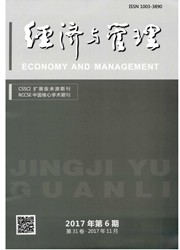

 中文摘要:
中文摘要:
在公私合作制下,公私部门的主体属性划分直接关系到双方的权责配置与合作形式。改革开放以来,中国城市公用事业发展的实践历程,实质是私人部门边界不断拓展、公私合作不断深化的过程。从跨界治理视角看,公私合作制蕴含的私人部门打破公共部门的垄断边界,突破城市政府的行政边界,政府部门间监管职能整合的内在逻辑,为公私部门的属性划分提供了理论启示。中西方文化对公私性质的认知差异表明:确定公权边界,明确经济主体的责任属性是判定公私部门的基本准则。基于这一准则,公共部门包括与城市公用事业直接或间接相关的行政部门,以及依法取得政府授权、代表政府行使公共职能的国有企业,私人部门则涵盖各种形态、甚至是国有资本在内的社会资本。上述结论的政策蕴意在于,政府要以包容的姿态接纳各种形态社会资本,并辅之以有效监管,才能真正推动城市公用事业领域公私合作制的发展。
 英文摘要:
英文摘要:
The nature of the public sector and private sector is the key issue for the development of the public-private partnerships(PPP),many problems are related or derived from it.The development of urban public utilities from BOT to franchise and multiple governance was actually reflected the expanding of the private sector boundary since the reform and opening.From the perspective of the cross-border governance,the private sector broke the public sector monopoly boundary and the city's administration boundary,integrate the regulatory functions between different government's departments are necessary for the development of PPP.By comparing the Chinese and western culture,I found that the boundary of the public power and judging the nature of the responsibility which the economic agents bear were the basic criterion to define the nature of public and private sectors.The public sectors includes all the administrative departments which directly or indirectly related to urban utilities,while the private sectors cover a wide range of social capital,even including the state-owned capital.The development of PPP not only requires the government to accept all kinds of social capital with a tolerance attitude,but also requires the government to implement effective supervision.
 同期刊论文项目
同期刊论文项目
 同项目期刊论文
同项目期刊论文
 期刊信息
期刊信息
